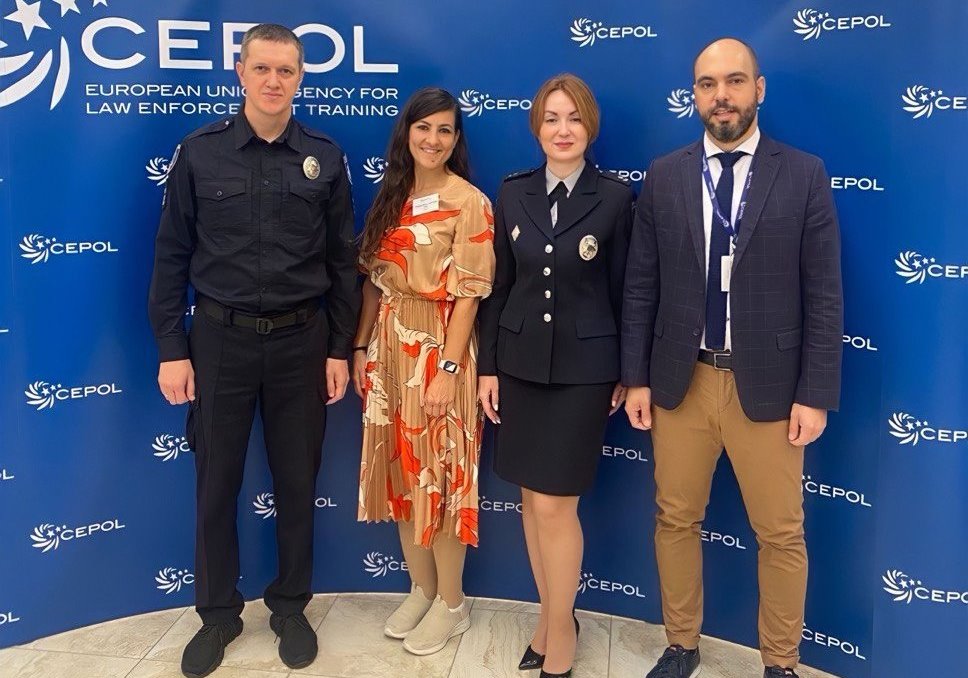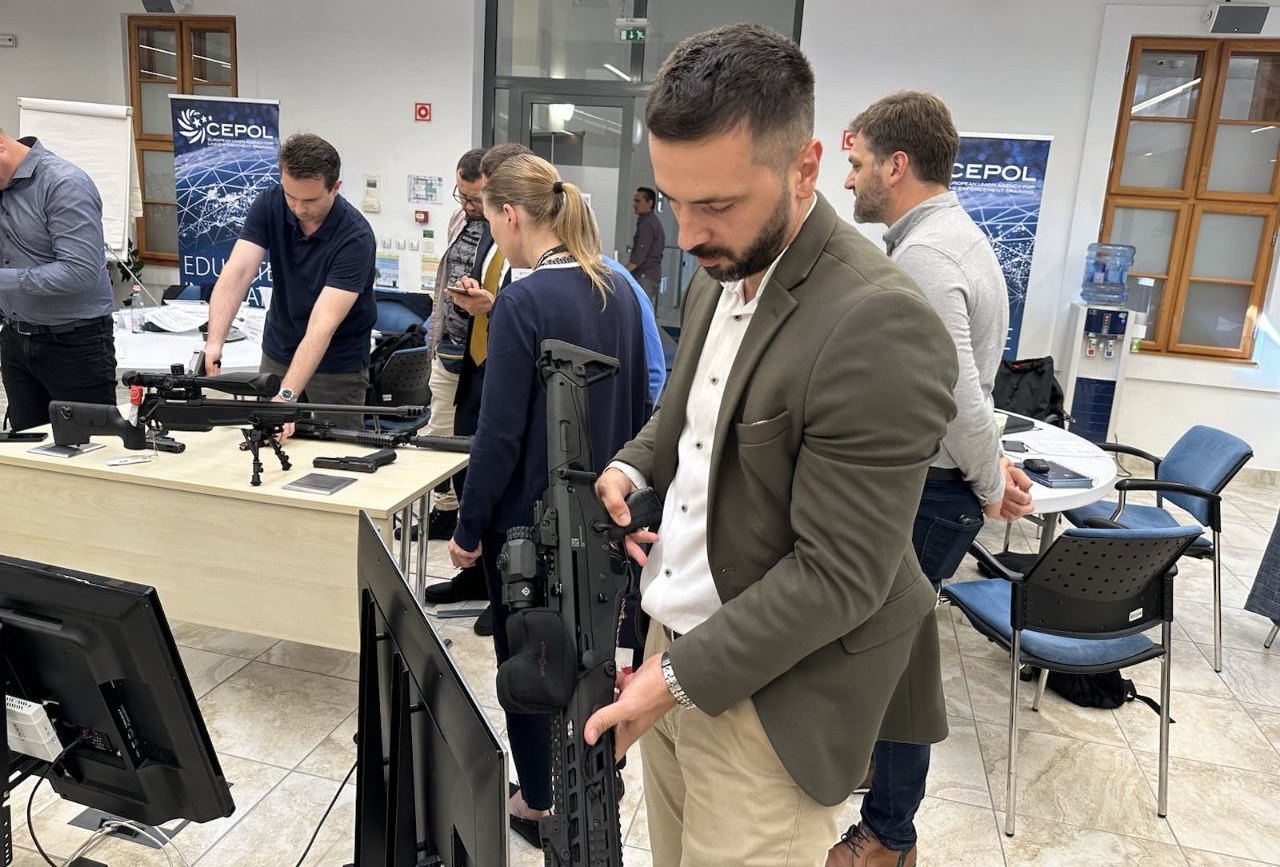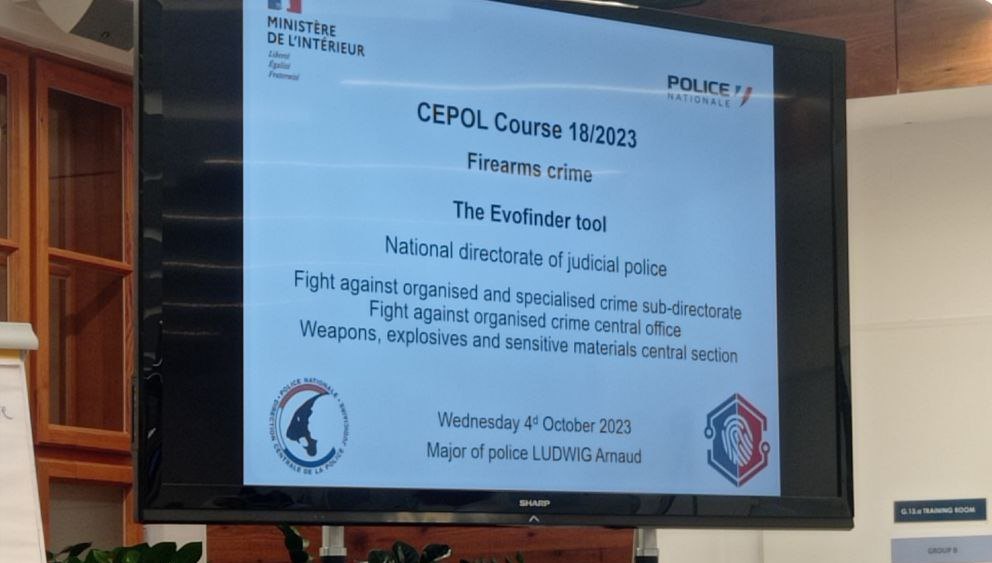Dmytro Sanakoiev who is the Head of the Department of Criminal Procedure and Strategic Investigations of the Institute of Law and Training Specialists for National Police Units took part in the training on combating firearms crime.

The event was organized by the European Union Agency for Law Enforcement Training (CEPOL). Participants include law enforcement officials who hold leadership positions, manage firearms policy and operations at the national level in various EU countries.
During the contact training on the basis of the CEPOL headquarter, Dmytro Sanakoiev familiarized the participants with the current situation in Ukraine that has become a result of the armed aggression of the Russian Federation and the following implementation of martial law in Ukraine. The scientist presented the digital learning guide “Equipment and armament of the armed forces of the Russian Federation and other forces of armed aggression against Ukraine” prepared together with specialists of the criminal analysis units of the National Police of Ukraine, the Main Investigative Department of the National Police of Ukraine and the Department of Operational and Investigative Activities of the State Border Service of Ukraine according to the results of the OSINT study.
During the event, the following topics were discussed: legal aspects of regulating the circulation of firearms in the countries of the European Union; EU legislation on firearms; features of forensic investigations using automatic ballistic identification systems and other related issues.

An important part of the training cycle was practical tasks on typical situations of identifying and documenting the facts of arms trafficking committed by transnational organized criminal groups.

Dmytro Sanakoiev noted that participation in the event had provided an opportunity not only to gain new knowledge and improve practical skills, but also to communicate with experts and specialists from almost all of Europe and establish contacts with colleagues. A special perspective is the implementation of the results of the training cycle into the educational and scientific process.
— 551

